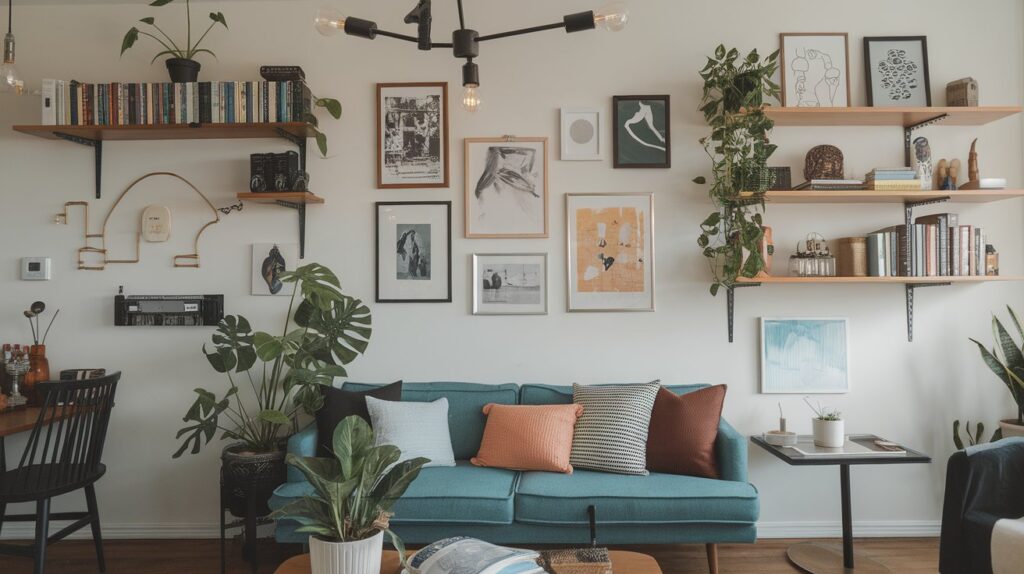With today’s busy lifestyle, our houses are asked to perform more than ever before, be offices, retreats, and centres of community. With these changing needs, what “well-designed home” has come to mean is no longer one-size-fits-all but rather deeply personal.
Personalisation isn’t just about decoration; it’s about shaping your space to fit your needs, routines, and identity.
In this article, we’ll explore some reasons why personalisation has become essential to modern living and how thoughtful design choices can transform your house into a meaningful, functional, and inspiring home.
Works in Harmony with Professional Design
One of the biggest myths surrounding personalisation is that it’s incompatible with professional design skills. Far from it, experienced designers and architects welcome personal feedback to build houses that are both functional and beautiful. Architects North London, for example, are increasingly using collaborative designs that combine their design experience with clients’ style and sense of taste to create living spaces that are uniquely theirs. This balance between professionalism and uniqueness yields homes that not only work from a strictly architectural perspective but are also intensely personal.
Enhances Functionality and Efficiency
Personalizing your home enables you to adapt the space in line with your daily habits and requirements. A pre-made floor plan may not fit your way of living, whether it’s a kitchen layout that is unsuitable for your cooking or no storage in busy areas. By personalising your environment, from the amount of drawer space in your closet to the lighting level in your work area, you enhance functionality as well as efficiency, lowering daily resistance and raising comfort.
Supports Lifestyle Flexibility
Flexible living is what contemporary life is all about. Working from home, educating children at home, or entertaining hobbies from home, your environment must change along with you. Tailored homes are more suited to evolving to meet changing needs. Built-to-order nooks, convertibles, or module shelving can reshape spaces as your way of life requires, providing an environmentally friendly means of interior design that expands with you.
Encourages Sustainability and Mindful Consumption
When individuals personalise their dwellings, they become more discerning in their choices. Instead of acquiring mass-market furnishings on a whim, homeowners are more thoughtful, choosing items that are functional and bring happiness. This thoughtfulness encourages sustainability because individuals are more inclined to spend money on strong, responsibly produced products instead of fleeting, trend-related items. Special-order amenities, local products, and efficient installations lessen further the environmental footprint.
Adds Long-Term Value
A well-planned, custom home can provide huge long-term value, not only financially, but as an enhancement to lifestyle. Customised enhancements like smart home automation or customised storage can increase your home’s resale value and enhance daily living. More and more homebuyers seek out distinctive features that demonstrate careful design, and a personal touch will make your house stand out in today’s competitive real estate market.
Increases Creativity and Expression
Your house should be a reflection of your personal creativity. If you’re a minimalist who adores crisp lines and monochromatic colour schemes or a free spirit who enjoys bright colours and mixed-media art, your home should reflect your personality. Customising your house allows you to express yourself artistically through design, whether through do-it-yourself crafts, personalised wall murals, or unique furniture.
Enhances Emotional Connection
A customised home creates a stronger emotional attachment to your home. When your surroundings represent your personality, accomplishments, and experiences, it becomes an extension of who you are. From photographs on the wall to antique furniture pieces, these things turn your house into a home. This emotional connection can play a large role in mental health, leaving you feeling secure, safe, and stable.
Promotes Wellness and Mindfulness
A customised home can help with both physical and mental well-being, every detail can be tailored to enhance relaxation and concentration. Carefully crafted spaces can also regulate natural light, enhance air quality, and include biophilic details, all of which are keys to healthy living. By designing your home with mindfulness, you create a space that encourages your best self.
Builds Family Ties and Cultural Heritage
Personalising your home is also how you preserve and celebrate your family values and cultural heritage. Whatever it is, whether a prayer room, a gallery wall of family photos, or passed-down furniture, these items ground you in your heritage and allow the next generations to know where they came from. It is especially important in multicultural homes, where melding the traditions is beautifully translated through interior design.
Conclusion
As the lines between work, play, and downtime continue to get ever thinner, our homes have to do more than look good; they have to nourish, inspire, and mirror us. So personalisation is a requirement. Because ultimately, the most cutting-edge home is one that feels resoundingly, unapologetically you.

